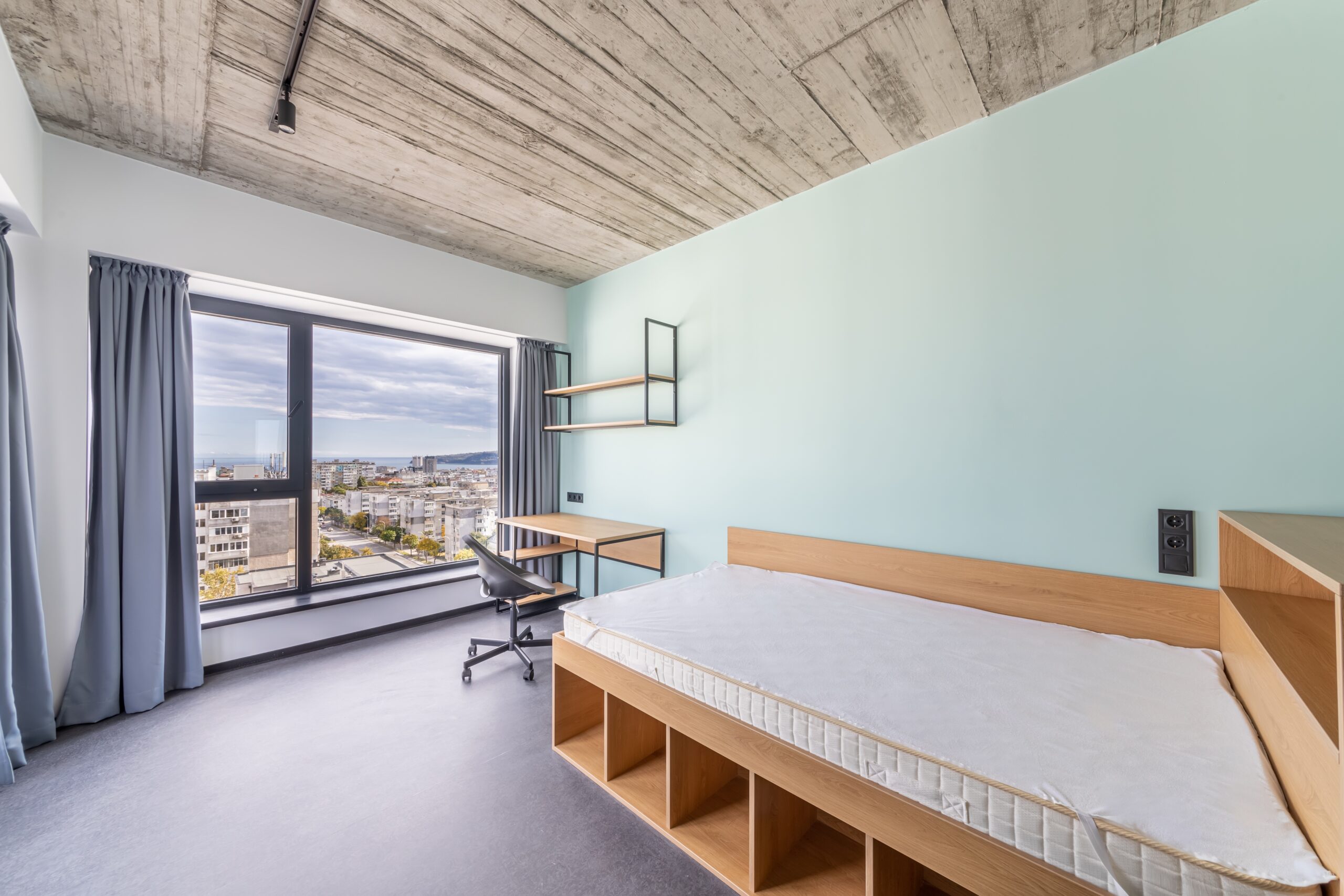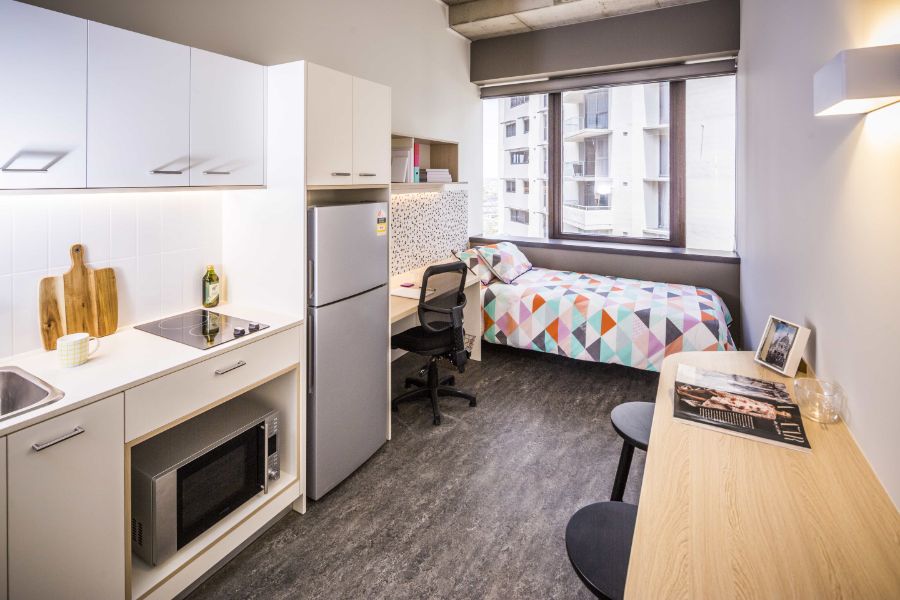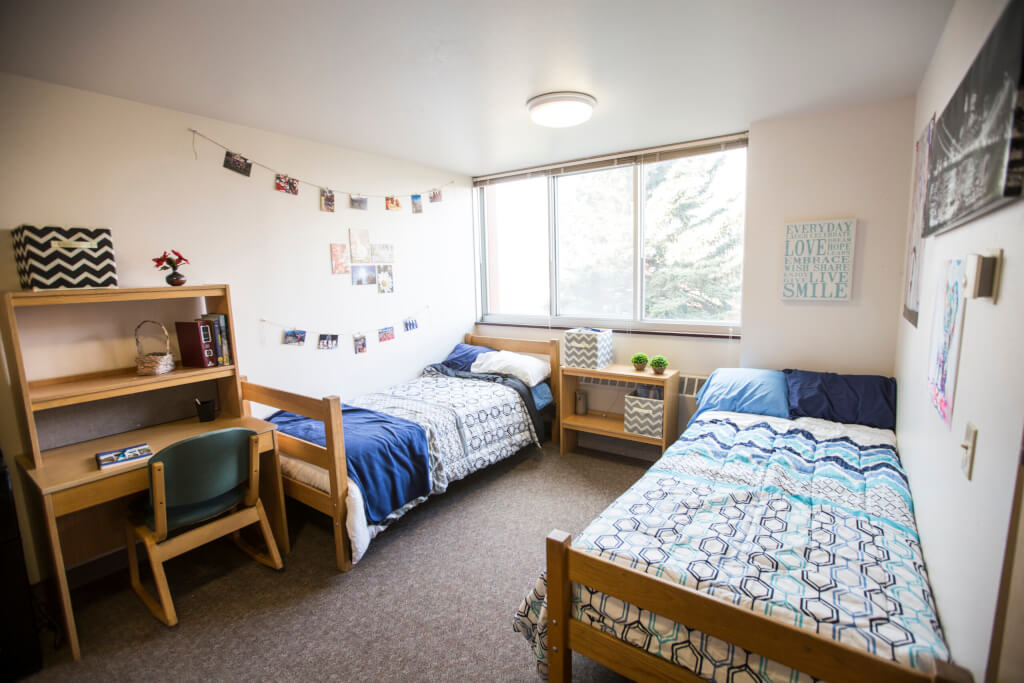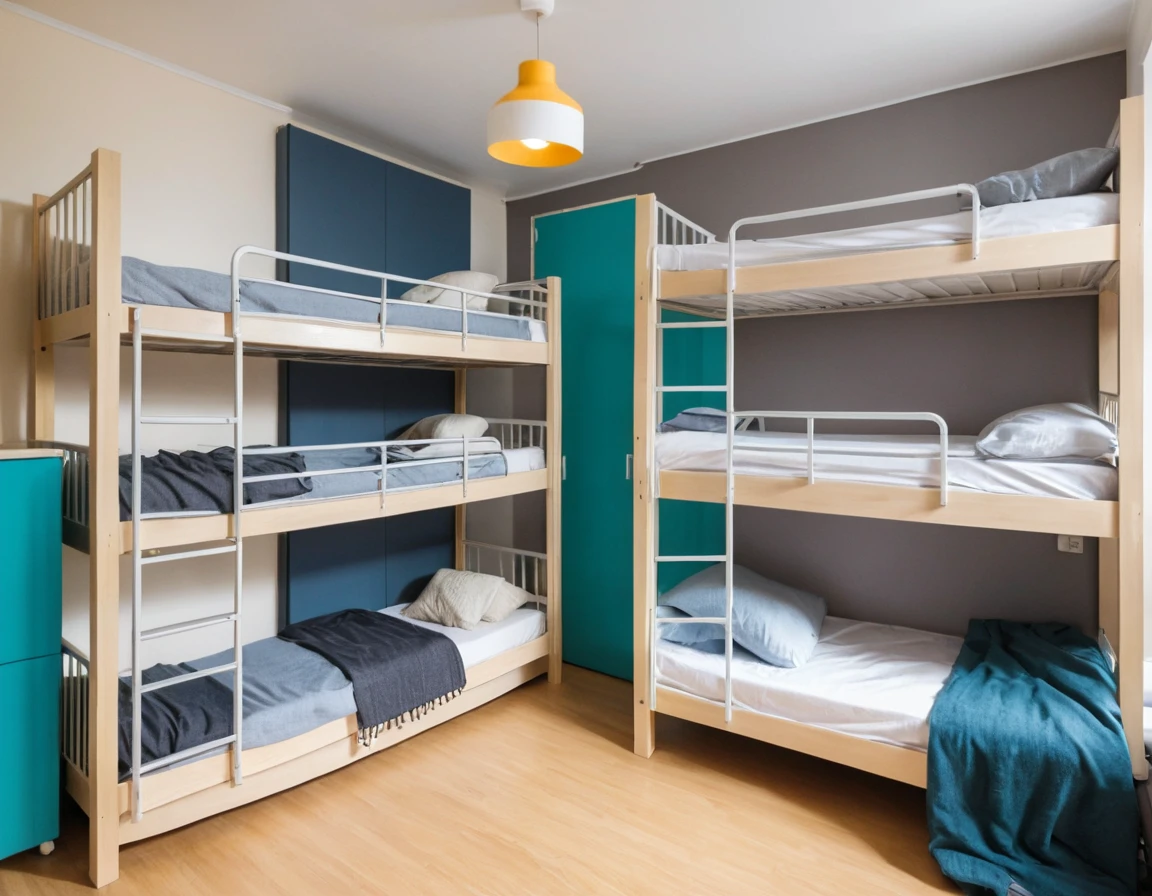Finding suitable accommodation is a critical step for international students embarking on their educational journey abroad. A well-chosen living space not only affects academic performance but also plays a significant role in overall well-being. Having a comfortable and conducive environment can foster better study habits, enhance social interactions, and provide a sense of security. Additionally, proximity to campus should be considered, as it can influence daily commutes and involvement in campus activities.
Challenges Faced by International Students
Despite the importance of finding the right place to live, international students often face various challenges:
- Language Barriers: Miscommunication can lead to misunderstandings regarding leases and house rules.
- Cultural Differences: Conforming to different social norms in shared living situations can be daunting.
- Financial Constraints: Adjusting to a new currency and managing living expenses can be stressful.
- Limited Knowledge: Many students are unfamiliar with available options or local housing market dynamics.
Navigating these challenges is essential to ensure a pleasant and successful study experience abroad.

Researching Accommodation Options
On-Campus Housing
On-campus housing is a popular choice for international students due to its convenience and community atmosphere. Living in dormitories or residence halls allows students to immerse themselves in campus life easily. Here are some advantages and considerations for on-campus housing:
- Accessibility: You are close to classes, libraries, and campus events, making it easy to stay engaged.
- Support Services: Many universities provide 24/7 support, meal plans, and laundry facilities.
- Social Opportunities: You’ll have the chance to meet fellow students and participate in organized events and activities.
However, students should be mindful of the application timelines and various housing options available through their university.
Off-Campus Housing Websites
For students seeking more independence, off-campus housing is a great alternative. Numerous websites offer resources to find apartments, shared housing, or private rentals, catering to different budgets and preferences. Here’s how to effectively use these platforms:
- Search Engines: Use popular sites like Zillow, Craigslist, or Facebook Marketplace to find listings.
- Student-Specific Sites: Websites like Uniplaces or Student.com cater specifically to international students and may provide shared housing options and reviews.
- Neighborhood Insights: Many sites include community ratings and reviews, helping to assess the safety and livability of various areas.
Researching thoroughly can save time and lead to an enjoyable living experience that meets students’ needs.

Setting a Budget
Cost of Living Considerations
Setting a realistic budget is crucial for international students to ensure a smooth transition to living abroad. The cost of living can vary significantly based on location, lifestyle, and accommodation type. Here are some essential factors to consider:
- Housing Costs: Research average rents in your chosen area, whether you opt for on-campus, shared, or private housing.
- Utilities: Factor in costs for electricity, water, gas, and internet, which can add a significant amount to your monthly expenses.
- Food and Transportation: Estimate your monthly grocery budget and commuting costs, as they can fluctuate based on proximity to the university and lifestyle choices.
Hidden Fees to Watch Out For
While budgeting, it’s essential to remain vigilant about potential hidden fees that may catch you off guard. Common hidden costs include:
- Application Fees: Many landlords and housing agencies charge non-refundable fees for processing rental applications.
- Security Deposits: Often equivalent to one month’s rent, these can require a significant upfront payment before moving in.
- Maintenance and Repair Fees: Some agreements might include clauses that charge tenants for maintenance or repairs.
Being informed about these possibilities can help avoid unpleasant surprises and ensure financial stability throughout your studies.[

Location Considerations
Proximity to Campus
When choosing accommodation, the proximity to campus is a vital factor for many students. Living close to the university can significantly enhance your overall experience and make daily life more manageable. Here are some benefits to consider:
- Convenience: Being within walking distance saves time and reduces transportation costs.
- Social Opportunities: Easy access lets you participate in campus activities and events, helping you build connections with peers.
- Flexibility: You can quickly return home between classes or grab meals without the hassle of long commutes.
Choosing a place close to campus can be a game-changer, making the transition to student life smoother.
Access to Public Transportation
In addition to proximity, access to public transportation plays an essential role in your accommodation decision. Reliable transit options can enhance your mobility and enable you to explore the surrounding area. Consider:
- Affordability: Public transportation is usually cheaper than owning a vehicle or relying on taxis, helping you stay within your budget.
- Convenient Travel: Quick access to buses, trams, or trains allows you to reach various parts of the city, from shopping to cultural attractions.
- Student Discounts: Many transit systems offer reduced fares for students, making travel even more economical.
Prioritizing both proximity to campus and access to public transport can create a more enjoyable and accessible living experience.

Safety and Security
Neighborhood Safety
When selecting accommodation, it’s crucial to consider the safety of the neighborhood. A secure area will provide peace of mind, allowing you to focus on your studies and socialize. Here are some tips to assess neighborhood safety:
- Research Crime Rates: Before committing to a location, check local crime statistics online. Websites like NeighborhoodScout can provide valuable insights.
- Visit During Different Times: Take a stroll around the neighborhood during the day and night to gauge the overall atmosphere and safety.
- Ask Residents: Connect with current students or locals to get their perspective on safety and any concerns they may have.
Your safety should always be a top priority.
Building Security Features
In addition to neighborhood safety, the security features of your building play a vital role in ensuring your well-being. When viewing potential accommodation, keep an eye out for:
- Secure Entry Systems: Look for buildings with keycard access or security personnel at entrances.
- Surveillance Cameras: A well-monitored building can deter criminal activity and enhance personal safety.
- Quality Locks: Check the condition of locks on doors and windows to ensure they provide adequate security.
When both the neighborhood and building security are prioritized, you can create a safer and more enjoyable living experience during your studies abroad.

Roommate Selection
Finding Compatible Roommates
Selecting a compatible roommate is crucial for a harmonious living experience. It’s like dating without the romantic aspect—finding someone whose lifestyle syncs with yours. Using platforms like Erasmusu and Roomster can help in this quest, as they allow you to filter potential roommates based on interests and study habits. Here are tips for finding the right fit:
- Create a profile that outlines your preferences, including habits, hobbies, and schedules.
- Conduct interviews: A casual chat can reveal a lot about compatibility. Ask questions about their daily routines, cleanliness standards, and social life.
- Consider personality: Sharing space with someone whose temperament complements yours can lead to a peaceful cohabitation.
Setting Expectations and Boundaries
Once you’ve found your roommate, it’s essential to establish expectations and boundaries early on. Open communication can prevent misunderstandings later. Here’s how to set the stage for a successful living arrangement:
- Discuss house rules: Outline shared responsibilities regarding chores, guests, and quiet hours.
- Address financial responsibilities: Make it clear how bills will be split and when they are due.
- Be approachable: Keep an open line of communication to discuss concerns as they arise.
By thoughtfully selecting a roommate and openly discussing your expectations, you can create a supportive environment that enhances your study abroad experience.

Lease Agreements
Understanding Rental Contracts
Navigating lease agreements can seem daunting for international students, but understanding the core elements is crucial for protecting your rights as a tenant. Rental contracts typically include:
- Duration of Lease: This specifies the length of your agreement, often ranging from six months to a year.
- Monthly Rent: Clearly stated, it’s important to confirm what’s included—are utilities covered, or will you pay separately?
- Deposit Requirements: Most landlords require a security deposit, usually equivalent to one month’s rent, held until you vacate.
Always read the lease thoroughly to avoid unexpected surprises.
Negotiating Lease Terms
Once you have a solid understanding of your lease, you may find opportunities to negotiate terms that work better for you. Here’s how:
- Discuss Flexibility: If you know your academic plans might change, inquire about a clause that allows for an earlier exit without penalty.
- Request Repairs: If the property needs maintenance, you can ask for repairs to be completed before your move-in date.
Good communication can lead to a mutually beneficial arrangement, ensuring a smoother transition into your new home. With a clear grasp of your lease and room for negotiation, you can feel more secure about your housing situation as an international student.

Furniture and Utilities
Furnishing Your Accommodation
Once you’ve secured accommodation, furnishing your new space can be both exciting and challenging. Depending on your rental agreement, you may have a few options for acquiring furniture:
- Look for Secondhand Options: Antique shops and thrift stores can be treasure troves for affordable furniture. Think about unique character pieces!
- Check Online Marketplaces: Websites such as Craigslist or Facebook Marketplace often have budget-friendly listings from students looking to sell used items.
- Essential Items: Prioritize basics like a bed, desk, and chair. These are crucial for both your comfort and study needs.
Furnishing can be an adventure, so take your time!
Setting Up Utilities
Getting your utilities in order is just as important as furnishing. Here are some steps to follow:
- Identify Necessary Services: Common utilities include electricity, water, gas, and internet. Check which are included in your rent.
- Contact Providers: Reach out to local utility companies to set up accounts. It’s best to do this as soon as you move in.
- Verify Costs: Be clear on monthly charges and any deposit requirements to avoid surprises later.
Establishing your utilities will create a comfortable living environment that supports your academic success during your time abroad.

Local Amenities
Grocery Stores and Restaurants Nearby
When choosing your accommodation, it’s vital to consider the availability of grocery stores and restaurants nearby. Having these amenities within walking distance can make your daily life much more convenient. Here’s what to look for:
- Grocery Stores: Find out if there are local supermarkets or smaller grocery stores where you can buy essentials. It’s helpful to have options that cater to various dietary needs, especially for international students.
- Dining Options: Explore nearby restaurants and cafes to get a taste of local cuisine or enjoy international dishes that remind you of home.
These local amenities can greatly enhance your living experience and create a sense of community.
Access to Healthcare Facilities
Access to healthcare facilities should also be a key consideration when selecting your accommodation. Being close to medical services can provide peace of mind, especially in a foreign country. Here are a few things to consider:
- Nearby Clinics and Hospitals: Research the nearest clinics or hospitals, ensuring they are equipped to handle both routine and emergency healthcare needs.
- Health Insurance: Make sure you understand how your health insurance works in your new location, and check if it is accepted at local facilities.
Having quick access to healthcare can provide reassurance during your study abroad journey, allowing you to focus on your education and making the most of your experience.

Community Life
Participating in Student Housing Events
Getting involved in student housing events is a fantastic way to foster a sense of belonging in your new environment. Many universities and housing complexes organize social events ranging from potlucks to game nights. Participating in these activities can help you:
- Build Friendships: Meeting fellow students in a relaxed setting can spark new friendships and connections.
- Explore Cultures: Engaging with international students allows you to share and celebrate diverse cultural backgrounds.
- Improve Communication: Socializing can also enhance your language skills in a fun, informal setting.
Each event is an opportunity to expand your network and create lasting memories.
Engaging with Local Community Organizations
In addition to student housing events, getting involved with local community organizations can enrich your study abroad experience. Many cities have organizations focused on cultural exchange, volunteer work, or advocacy that welcome students. Here’s how to engage:
- Volunteer Opportunities: Participate in community service projects that benefit local residents, enhancing your understanding of the area.
- Cultural Groups: Join local clubs or organizations that share your interests or cultural background—this can make your new city feel more like home.
- Networking Events: Attend workshops or networking events to meet professionals in your field while making valuable contacts.
Engaging with community organizations not only broadens your social circle but also helps you develop a deeper connection to your new surroundings.
